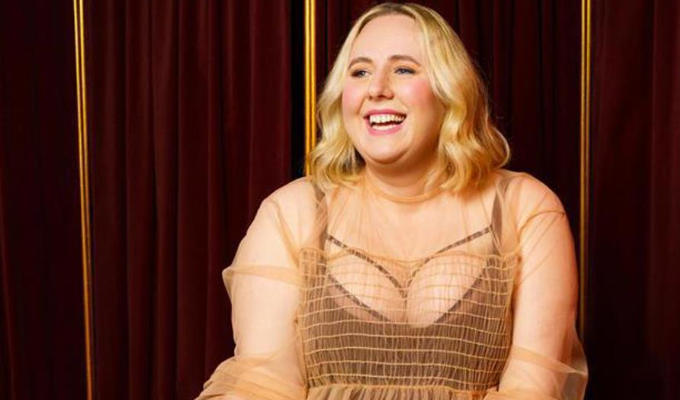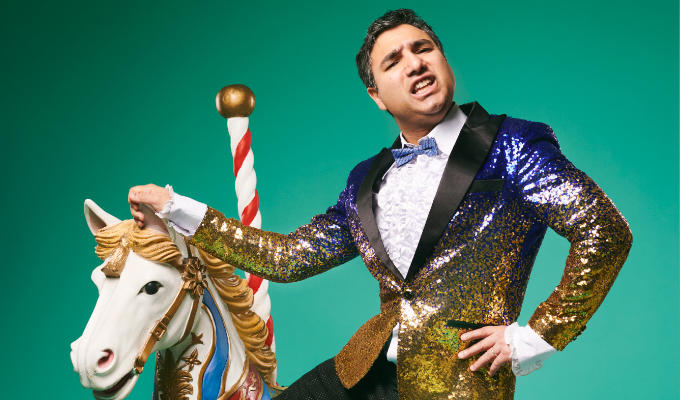Big Fat Gypsy Gangster
Note: This review is from 2011
Review by Steve Bennett
A belated, comedic addition to the enduring British gangster genre – though suddenly topical given today’s events at Dale Farm – this strange vehicle for Ricky Grover’s psychotic Bulla alter-ego has some outrageously silly moments, but set in such a tangled, bizarre story that it certainly takes some perseverance to get at them.
It is no small achievement for the comic to have got this made at all – how many other stand-ups of similar status could have got the financing, cast and crew together? – and he not only stars, but directed and co-wrote it with Maria Grover (a relation, we assume) as well.
But perhaps another pair of eyes could have avoided some of the obvious pitfalls the messy script tumbles into to bring out the best elements of the comedy-adventure that only fleetingly appear, and only really gel relatively late in the film.
Bulla, if you don’t know, is a sociopathic East End gangster, fiercely loyal to his family but prone to the old claret-spilling ultra-violence, whether as part of a planned bank raid or an unhinged moment of madness. We first meet him as he’s released from 16 years’ jail, mostly in solitary.
Or rather we don’t meat him, as most of the first ten minutes of the film is full of talking heads explaining what a fearsome ‘human timebomb’ this character is, breaking the cardinal ‘show don’t tell’ rule of filmmaking. Every character is introduced, as is now the cliché, with a freeze-frame made into a poster caption, often containing information we already know, but we are missing the most important figure. If this aims to build up his mythical villainous status, like the shark in Jaws, it doesn’t come off, and is just frustrating
When we do finally do get properly introduced to Bulla, most of the action takes place in the back of a Transit van as the newly ex-con signs a deal with an American documentary-maker (one eye on a US distribution deal maybe) to make this very film, as his accountant Jik Jickles (a scene-stealing Omid Djalili) advises.
Then, as if suddenly struck by how static everything has been so far, Grover throws absolutely everything at the screen, without much care for whether it really makes sense. In an explosion of random sketch ideas, a tour bus is hijacked (why?), we meet a girl band obsessed with him (why?) and we are introduced to two of the three mystical ‘spiritual advisers’ he has (why?).
These gurus are played by the most unlikely trio of Rufus Hound, Steven Berkoff and Derek Acorah, while the girl band features N-Dubz singer and X-Factor judge Tulisa Contosatavlos so you can’t help but think he’s using every celeb who replied to the email. Yet only one cameo, really works – Peter Capaldi (who directs Grover in the Jo Brand NHS comedy Getting On) in a memorable scene as Bulla’s prison psychiatrist.
This section’s largely a burst of noise, as unpredictable and baffling as Bulla’s violent outbursts – a disconcerting feeling that’s underlined by the snatches of him dancing or philosophising in a white room, possibly representing his inner monologue.
There are some nice moments amid all this, though. Bulla’s ‘we were so poor…’ speech is quietly surreal, and while the gay ex-cop who is our anti-hero’s nemesis is every much as cartoonish as the other characters, the cheap sight gags his too-short kimono offers are charmingly immature.
When, after all this, we get to the nub of the story, the film really starts to work. Seems Bulla needs to raise some cash to save his beloved, aggressively batty Aunt Queenie’s boozer – and the only way to do that in the gypsy world from which he hails is by stealing or fighting. And the solution he comes up with is hilarious, if hardly politically correct.
There’s a sub-plot involving a matter of honour with Djalili’s character, that doesn’t bear much logical scrutiny, but gives the Iranian some reason to be on screen, which is always welcome even if you might want to obliterate the memory of his hirsute torso from your memory. Watch out, too, for a number of comedians in cameos, from Ninia Benjamin to Michael Smiley.
The film’s personality is as random as Bulla’s; well-intentioned but misguided, never quite sure what it is, or what it wants to do next. One such mood swing comes in the closing scenes which show a more tender side to our psycho, an unexpected and out-of-character moment that allows Grover to demonstrate his formidable acting chops.
In all, a bit of mess, redeemed by some great moments. But would you really expect more… after all, how many great films are named after faddish TV shows?
- Big Fat Gypsy Gangster is released on DVD today. Click here to buy from Amazon for £8.99
Review date: 19 Sep 2011
Reviewed by: Steve Bennett






